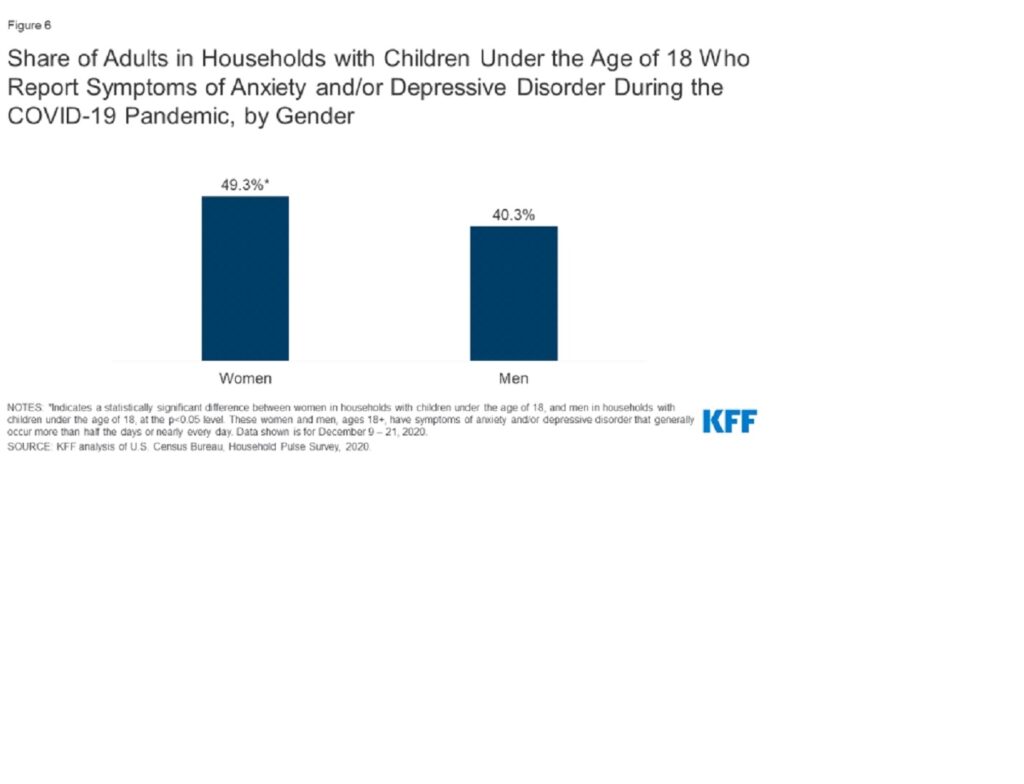The Implications Of COVID-19 For Mental Health and Substance Use

By Uduak Effiong
The COVID-19 pandemic and the associated economic collapse negatively affect people’s mental health and creates new problems for those already experiencing substance use disorders and mental illnesses. According to recent reports, throughout the pandemic, in the United States around 4 out of 10 persons showed symptoms of depression or anxiety.

Additionally, another research demonstrated that numerous adults reported specific negative effects on their general well-being and mental health, like difficulty in sleeping (36%), problems in eating (32%), worsening of chronic conditions (12%), and increased substance or alcohol use (12%), especially due to their anxiety and stress about the COVID-192.
In this article, we will discuss pandemic-related problems in different age groups.
Pandemic Related Problems In Different Age Groups
With the ongoing pandemic, public health measure is showing an increase in a number of people to conditions linked with poor mental health outcomes, such as job loss and isolation.
A study reported that young adults face different pandemic-related problems, including the closure of universities and financial loss, that might contribute to poor mental health. Similarly, according to a study, conducted in 2020, a greater proportion of young people (of age 18-24 years) showed symptoms of depression and anxiety (56%). In comparison to the adult population, young people were more likely to report suicidal thoughts (26 % versus 11 %) and substance use (25 % versus 13 %)3.
It is also important to mention here, that before the pandemic, young individuals were already suffering from substance use disorders and poor mental health, and numerous young adults did not receive treatment.
Additionally, Job loss due to ongoing pandemics has been linked to increased despair, anxiety, low self-esteem, and distress and may result in an increased incidence of substance use disorder and suicide among adults. Moreover, research illustrated that in families with poor income or job loss, more mental illness symptoms were reported than adults in families with no income or job loss throughout the pandemic (that is 53% versus 32%)4.
From the above researches, we can conclude that the Covid-19 negatively affects the mental health of young and adults. However young and adults are not the only ones affected by the COVID-19. According to a study, both children and parents started experiencing mental health symptoms at the start of the pandemic. Furthermore, women with children are more likely to report mental health issues than men5.
Similarly, another two researches showed that during the pandemic, adults with children below age 18, compared to individuals without children experienced more symptoms of depression and anxiety (45percent versus 41 percent )5. Similarly, women with children below the age of 18, reported more symptoms of anxiety and depression throughout the pandemic (49% vs. 40%, respectively)4.

Thus, it is safe to assume that the pandemic has implications for both substance use and mental health, especially for those at risk of developing new or worsening mental health issues. Therefore, it is the responsibility of the government authorities that long-term services should be provided to promote mental health and to restrict the use of drugs.
References
⦁ Stack E, Leichtling G, Larsen JE, Gray M, Pope J, Leahy JM, Gelberg L, Seaman A, Korthuis PT. The Impacts of COVID-19 on Mental Health, Substance Use, and Overdose Concerns of People Who Use Drugs in Rural Communities. J Addict Med. 2020 Nov 3:10.1097/ADM.0000000000000770. doi: 10.1097/ADM.0000000000000770. Epub ahead of print. PMID: 33156181; PMCID: PMC8089109.
⦁ KFF analysis of Centers for Disease Control and Prevention, National Center for Injury Prevention and Control. Web-based Injury Statistics Query and Reporting System (WISQARS) (2008 and 2018). Accessed at: https://webappa.cdc.gov/sasweb/ncipc/mortrate.html
⦁ KFF analysis of Centers for Disease Control and Prevention, National Center for Injury Prevention and Control. Web-based Injury Statistics Query and Reporting System (WISQARS) (2018). Accessed at: https://webappa.cdc.gov/sasweb/ncipc/leadcause.html
⦁ KFF analysis of the 2018 National Health Interview Survey. “Serious psychological distress” is based on the Kessler 6 distress scale.
⦁ KFF analysis of National Survey of Children’s Health, 2016-2019.
